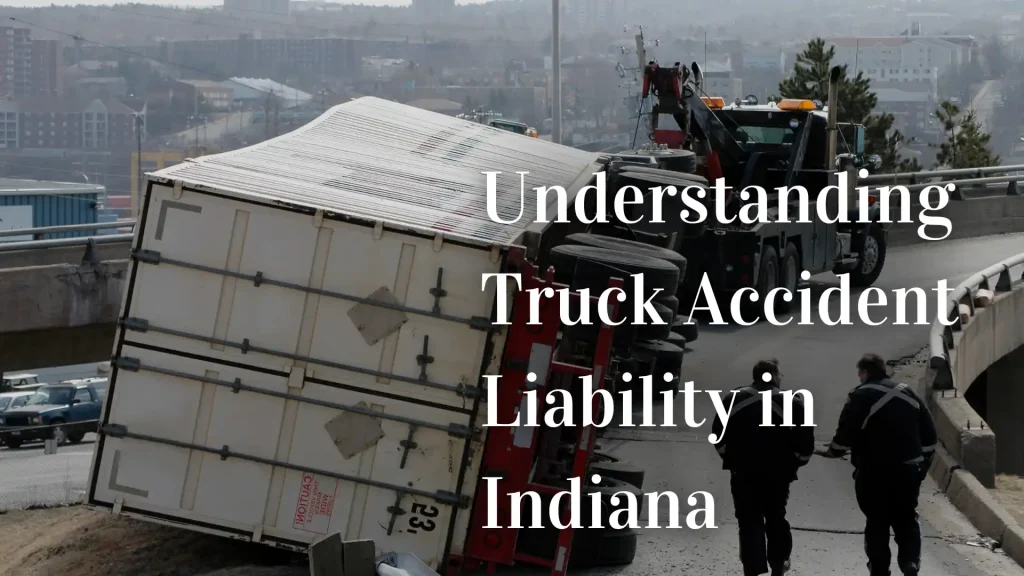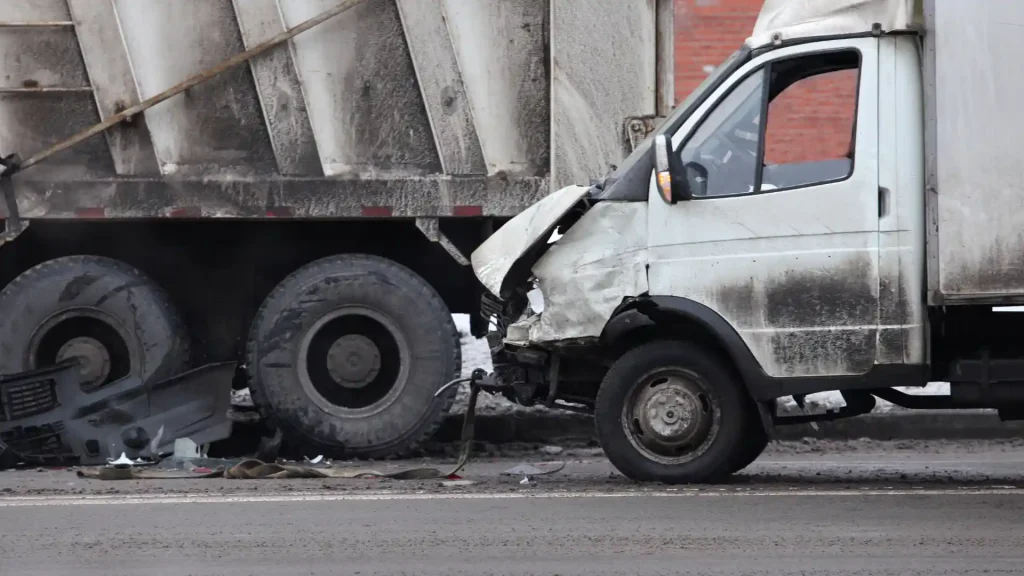 Commercial truck accidents frequently leave victims with significant and life-altering injuries, requiring extensive medical treatment and long-term care. If you were injured in an Indiana truck accident, you likely have questions about how to hold the at-fault parties liable for your losses. While truck accident cases are often more complex than other types of motor vehicle accidents due to the various parties involved, victims can seek compensation from each party, adding up to the total compensation they need.
Commercial truck accidents frequently leave victims with significant and life-altering injuries, requiring extensive medical treatment and long-term care. If you were injured in an Indiana truck accident, you likely have questions about how to hold the at-fault parties liable for your losses. While truck accident cases are often more complex than other types of motor vehicle accidents due to the various parties involved, victims can seek compensation from each party, adding up to the total compensation they need.
How Fault Is Determined in Truck Accidents
The first step to holding a party liable in a truck accident case is understanding how the accident occurred and determining which parties were at fault. This is done by gathering various types of evidence to create a complete picture of the incident. Some of the most common and useful types of evidence truck accident lawyers collect are:
- Traffic Camera Footage: Traffic, security, and dashboard cameras can capture the accident or the events leading up to or directly following it. This footage is often among the best evidence, as it can clearly show what happened.
- Eyewitness Statements: Eyewitnesses can provide additional information about the incident that you may not have and can back up your claims by providing supporting statements.
- Expert Testimony: Many truck accident cases involve hiring experts to testify about specific aspects of the incident. For example, a crash reconstruction specialist may testify about how the collision occurred, and a trucking industry veteran may testify about the regulations the at-fault parties ignored.
- Accident Scene Photographs: Photographs from the accident scene are crucial pieces of evidence that can show the damage done to the vehicles, their final resting places, the road conditions, and any relevant traffic signs or signals.
- Trucker Logbook Entries: Commercial truck drivers must keep a physical or digital logbook in their truck’s cab. This logbook contains various information, including how long the trucker was driving, which can play a vital role in your case.
- Truck Electronic Control Modules: Modern trucks have ECMs that record vehicle data, such as how fast the truck was moving when the collision occurred.
- Truck Maintenance Records: By checking the truck’s maintenance records, your lawyer can determine if poor maintenance contributed to the accident, such as if a brake failure was preventable.
Parties That Can Be Held Liable in a Truck Accident
Depending on the circumstances of the accident, multiple parties could share liability for your injuries. Some of these parties include:
- Negligent truck drivers who were speeding, distracted, fatigued, or intoxicated
- Trucking companies that encouraged their drivers to speed or skirt trucking regulations to save time and money
- Cargo loaders who failed to properly load and secure freight on the truck
- Maintenance providers who provided inadequate maintenance, contributing to the accident
- Truck manufacturers, if a defective part played a role in the crash
- Other motorists who may have been involved in the accident, such as if they cut off the truck, leading to the collision
- Government entities responsible for maintaining the roadways if poor road conditions were a contributing factor
The Role of Trucking Regulations in Liability
Several federal and state trucking regulations, including hours of service regulations, cargo regulations, and truck size and weight limits, could significantly affect your case.
Federal Hours of Service Regulations
The Federal Motor Carrier Safety Administration (FMCSA) regulates the length of time a truck driver can be on the road. These rules are meant to prevent fatigued driving. Drivers are required to have at least 10 consecutive hours off-duty after 11 hours on the road. They must also take a 30-minute break for every eight cumulative hours of driving.
Federal Cargo Securement Regulations
The FMCSA has established different cargo securement regulations for different types of cargo a truck may carry. If unsecured or inadequately secured cargo contributed to the accident, your lawyer can point to these regulations to help prove negligence.
Indiana Truck Size and Weight Limits
Under Indiana law, the maximum gross weight a truck can be is 80,000 lbs. Lower weight limits are in place depending on the number of axles. Overweight trucks require more stopping distance, increasing the chances of an accident. Additionally, the size limits are 8’6” wide, 13’6” tall, and 40” long for a single vehicle.
Seeking Compensation After an Indiana Truck Accident
 When seeking compensation after an Indiana truck accident, your first option will typically be to file an insurance claim with the trucking company’s liability insurance. Commercial trucks must have the following liability insurance coverage under federal law:
When seeking compensation after an Indiana truck accident, your first option will typically be to file an insurance claim with the trucking company’s liability insurance. Commercial trucks must have the following liability insurance coverage under federal law:
- $300,000 for non-hazardous freight moved in vehicles weighing less than 10,001 lbs.
- $750,000 to $5,000,000, depending on the freight
If another motorist contributed to the accident, you can also file an auto insurance claim against their liability coverage. All Indiana drivers must have at least this much coverage:
- $25,000 per person in bodily injury
- $50,000 per accident for bodily injury
- $25,000 per accident for property damage
You can also file lawsuits against other parties that contributed to the accident. Those parties can include cargo loaders, vehicle maintenance providers, and government entities.
Comparative Negligence in Truck Accidents
If you were partially at fault for the accident, Indiana’s modified comparative negligence law may apply to your case. Under comparative negligence, the compensation an injured party can receive is reduced by a percentage equal to their degree of fault for the accident. Additionally, injured parties cannot recover compensation if they are more than 50 percent at fault.
One of the main reasons to work with a truck accident attorney is that they can push back against the insurance companies’ attempts to place fault for the accident on you. A lawyer can help maximize your compensation by reducing your degree of fault.
Contact Our Indiana Truck Accident Lawyers
Were you injured in an Indiana truck accident? Contact Hankey Marks & Crider at (317) 634-8565 or contact us online for a free consultation with an experienced truck accident lawyer about your case. Our firm has over 80 years of combined legal experience and a track record of successfully recovering the compensation our injured clients need.


